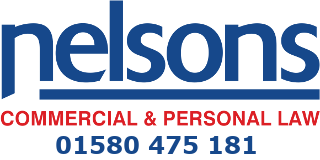Searches – what are they all about?
Posted by Justin on Mar 8, 2009 in Blogs, business, buying, buying-pubs, English Pub, law, legal, legal-procedure, pub-buying, pub-sale, pub-sales, pubs, selling, solicitor | 0 commentsLawyers often talk about “the searches”, but what do they mean?
The main search is the “local search” – strictly, a search in the register of local land charges maintained by the local district or borough council (or unitary authority), combined with a range of enquiries raised with that council, all in relation to the property being searched against – not in relation to neighbouring land
Local land charges are effectively notices registered by the council against the property so that any buyer or other interested party can become aware of them. For example –
– Notice of the fact that the property is in a Conservation Area; meaning that Conservation Area consent (as well as normal planning permission, if that is needed) is required for any alterations to the external appearance of the property and that all mature trees are protected as if subject to Tree Preservation Orders
– Notice of the fact that the property is in a Smoke Control Area; meaning that only smokeless fuel can be burnt there
– Notice of the existence of conditional planning permissions; so that a buyer can check (a) that the conditions have been complied with to date and (b) that they will continue to be complied with if they are “continuinfg conditions”
– Notice of the fact that the property is a Listed Building; imposing a whole range of obligations on the owner, including responsibility for previous owners’ breaches of listed building control
The enquiries cover a range of aspects that the council can be expected to know about: whether there are any proposed road, railway or traffic schemes for the area; whether the council knolws of any breaches of planning control or Building Regulations at the property; whether the propoerty is in a radon-affected area; whether there is any contaminated land nearby; whether any footpaths or gas pipelines crossd the property; etc. Some of these enquiries are standard and raised every time; others are less standard (“optional”) and only raised where they might be relevant; in addition, specific, custom enquiries can be added
A relevant optional enquiry is to ask whether any statutory or informal notices have been served under the Food Hygiene Regulations, for instance – you would not ask that about a private house, but you would when buying or leasing a pub, as the existence of such a notice could mean spending money on improving the kitchens
That covers the local searches. Other searches include –
– the drainage and water search: finding out about the drainage and water supply for the property
– a plan search: to see what recent or pending planning applications have been made for properties in the neighbourhood
– a search of the Land Registry’s Index Map, to find out about registered land in the area
– a chancel repairs search: to see whether the occupier of the property can be made liable to contribute towards the cost of chancel repairs at a local search
– and so on
The search results come back at different speeds – the chancel check is usually dealt with in 24 hours; the local search can take anything from 2 days to 2 months, depending on the council; etc. The Buyer’s solicitor should report to the Buyer as each result is rfeceived, cross-referring to the information already supplied by the Seller – or raising additgional enquiries with the Seller, if apopropriate – so that any problems are addressed as soon as possible and the transaction is not slowed down unnecessarily



